And the Lord spoke to Moses, saying: these are My feasts.
Leviticus 23:1-2
We believe the Word of the Lord God Almighty is timeless and eternal. We hold His Word to be good instruction, revealing His heart to all mankind throughout our sojourn in this world. We also believe His Word gives us insight into events that unfolded, are unfolding, and are yet to unfold as we await the return of Yeshua as King of Kings and Lord of Lords.
In this, we believe the biblical feasts of the Lord – His established Appointed Times – reveal His redemptive plan for the world and constitute His agenda with His redeemed people. These appointments (Moedim) are “shadows” of the Messiah Yeshua, and are relevant for His followers today, because they never stop pointing to Him throughout life on this earth!
We celebrate all seven festivals that Adonai established. Plus, we celebrate two festivals that are not God's ordinance, but are an important part of Jewish tradition. The first is Purim, a holiday based on the events of the Book of Esther. And Hanukkah, the Feast of Dedication, which is mentioned in John chapter 10.
In this, we believe the biblical feasts of the Lord – His established Appointed Times – reveal His redemptive plan for the world and constitute His agenda with His redeemed people. These appointments (Moedim) are “shadows” of the Messiah Yeshua, and are relevant for His followers today, because they never stop pointing to Him throughout life on this earth!
We celebrate all seven festivals that Adonai established. Plus, we celebrate two festivals that are not God's ordinance, but are an important part of Jewish tradition. The first is Purim, a holiday based on the events of the Book of Esther. And Hanukkah, the Feast of Dedication, which is mentioned in John chapter 10.
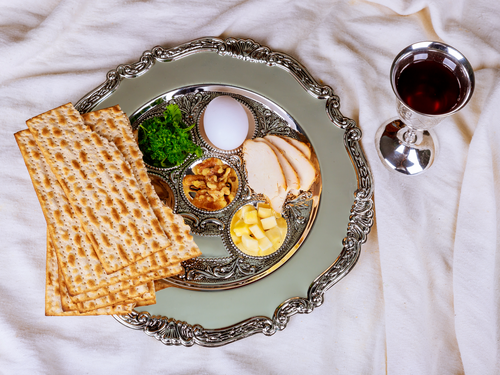
Pesach
Pesach is a major Biblical holiday and one of the Three Pilgrimage Festivals. It celebrates the Exodus of the Israelites from slavery in Egypt. "During the first month, on the fourteenth day of the month in the evening, is Adonai’s Passover." (Leviticus 23:5)
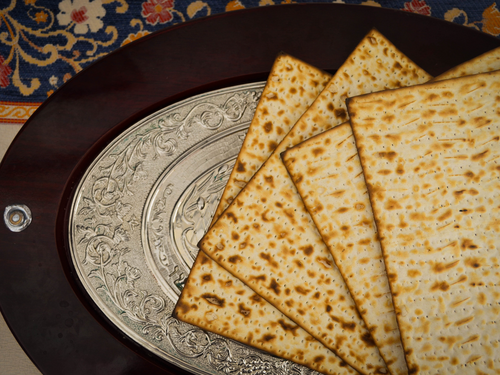
Hag HaMatzot
Hag HaMatzot, also known as the Feast of Unleavened Bread, is a seven-day Jewish holiday that immediately follows Passover (Pesach).
"On the fifteenth day of the same month is the Feast of Matzot to Adonai. For seven days you are to eat matzah". (Leviticus 23:6)
"On the fifteenth day of the same month is the Feast of Matzot to Adonai. For seven days you are to eat matzah". (Leviticus 23:6)
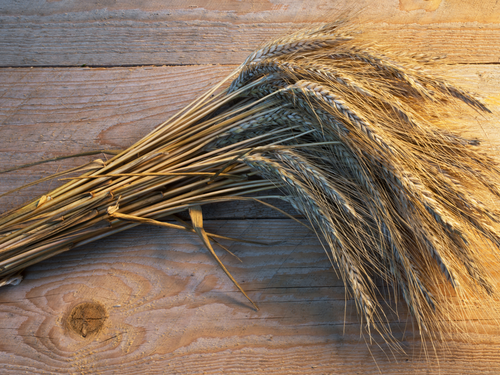
Yom HaBikkurim
Yom HaBikkurim - the Day of First Fruits, celebrated on the second day of Hag HaMatzot, involves offering the first barley harvest to God. The counting of the Omer (a period of 50 days) connects Hag HaMatzot with the festival of Shavuot (Pentecost), which is also associated with the first fruits of the wheat harvest.
"When you have come into the land which I give to you, and reap its harvest, then you are to bring the omer of the firstfruits of your harvest to the kohen." (Leviticus 23:10)
"When you have come into the land which I give to you, and reap its harvest, then you are to bring the omer of the firstfruits of your harvest to the kohen." (Leviticus 23:10)
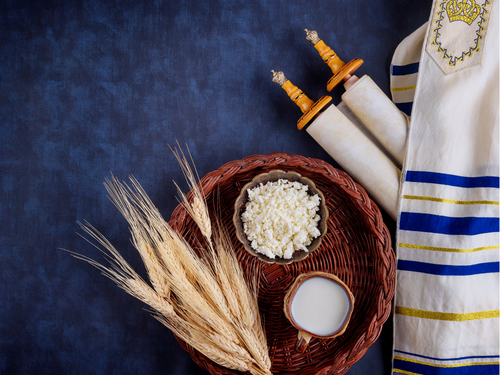
Shavuot
The word Shavuot means 'weeks' in Hebrew and marks the conclusion of the Counting of the Omer. In the Bible it is also called as "Festival of Reaping" and "Day of the First Fruits" (do not confuse with the day of the first fruits of barley).
“Then you are to count from the morrow after the Shabbat, from the day that you brought the omer of the wave offering, seven complete Shabbatot. Until the morrow after the seventh Shabbat you are to count fifty days, and then present a new grain offering to Adonai." (Leviticus 23:15-16)
“Then you are to count from the morrow after the Shabbat, from the day that you brought the omer of the wave offering, seven complete Shabbatot. Until the morrow after the seventh Shabbat you are to count fifty days, and then present a new grain offering to Adonai." (Leviticus 23:15-16)
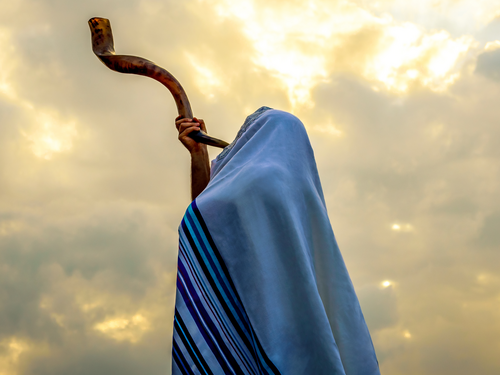
Yom Teruah
Yom Teruah, also known as the Feast of Trumpets. Yom Teruah is a day of remembrance, reflection, and anticipation. It's a call to wake up and prepare for God's appointed times, both past and future.
“Speak to Bnei-Yisrael, saying: In the seventh month, on the first day of the month, you are to have a Shabbat rest, a memorial of blowing (shofarot), a holy convocation." (Leviticus 23:24)
“Speak to Bnei-Yisrael, saying: In the seventh month, on the first day of the month, you are to have a Shabbat rest, a memorial of blowing (shofarot), a holy convocation." (Leviticus 23:24)
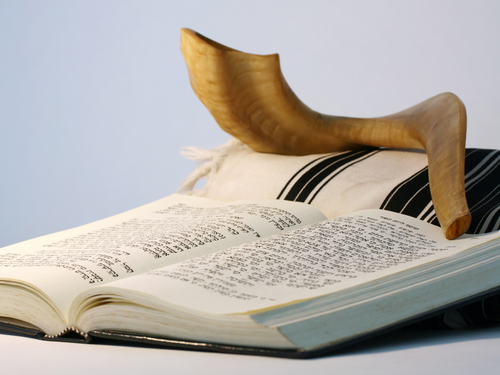
Yom Kippur
Yom Kippur means “Day of Atonement,” it is primarily centered on atonement and repentance.
"Adonai spoke to Moses, saying: “However, the tenth day of this seventh month is Yom Kippur, a holy convocation to you, so you are to afflict yourselves. You are to bring an offering made by fire to Adonai." (Leviticus 23:26-27)
"Adonai spoke to Moses, saying: “However, the tenth day of this seventh month is Yom Kippur, a holy convocation to you, so you are to afflict yourselves. You are to bring an offering made by fire to Adonai." (Leviticus 23:26-27)
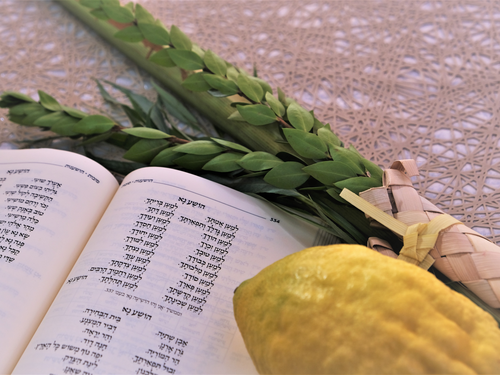
Sukkot
Sukkot, also known as the Feast of Tabernacles The names used in the Torah are "Festival of Ingathering" (or "Harvest Festival") and "Festival of Booths".
"Adonai spoke to Moses saying: “Speak to Bnei-Yisrael, and say, On the fifteenth day of this seventh month is the Feast of Sukkot, for seven days to Adonai." (Leviticus 23:33-34)
"Adonai spoke to Moses saying: “Speak to Bnei-Yisrael, and say, On the fifteenth day of this seventh month is the Feast of Sukkot, for seven days to Adonai." (Leviticus 23:33-34)
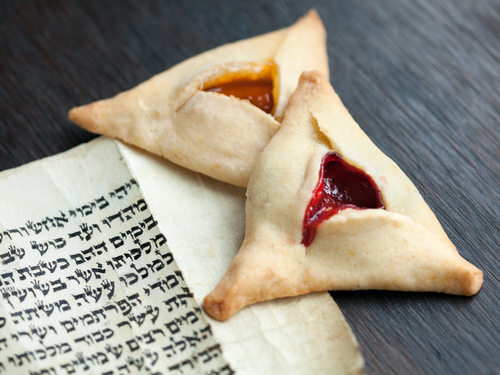
Purim
Purim is a Jewish holiday that commemorates the saving of the Jewish people from annihilation at the hands of an official of the Achaemenid Empire named Haman, as it is recounted in the Book of Esther.
"the Jews established and took upon themselves, upon their descendants, and upon all who joined with them, that they would commemorate these two days in the way prescribed and at the appointed time every year. These days should be remembered and observed in every generation by every family and in every province and every city. These days of Purim should not fail from among the Jews, nor their remembrance perish from their descendants." (Esther 9:27-28)
"the Jews established and took upon themselves, upon their descendants, and upon all who joined with them, that they would commemorate these two days in the way prescribed and at the appointed time every year. These days should be remembered and observed in every generation by every family and in every province and every city. These days of Purim should not fail from among the Jews, nor their remembrance perish from their descendants." (Esther 9:27-28)
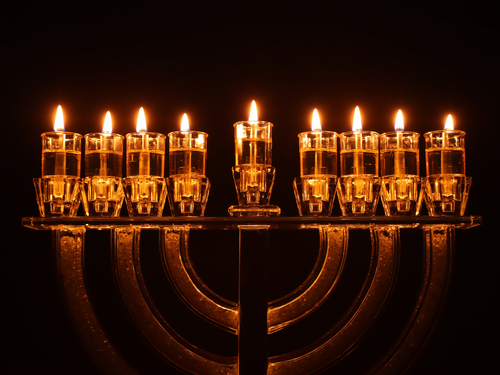
Hanukkah
Hanukkah is a Jewish festival commemorating the recovery of Jerusalem and subsequent rededication of the Second Temple at the beginning of the Maccabean Revolt against the Seleucid Empire in the 2nd century BCE. The story of Hanukkah is told in the books of the First and Second Maccabees.
